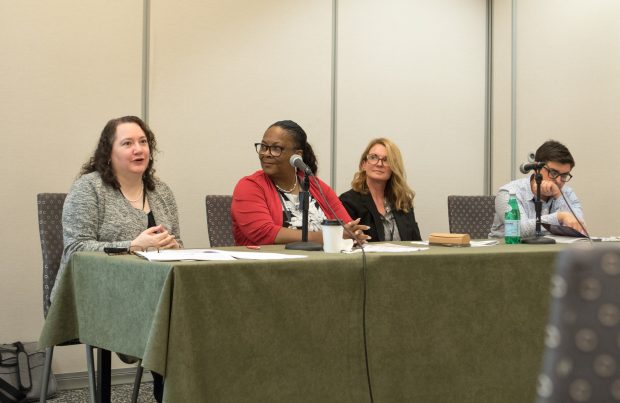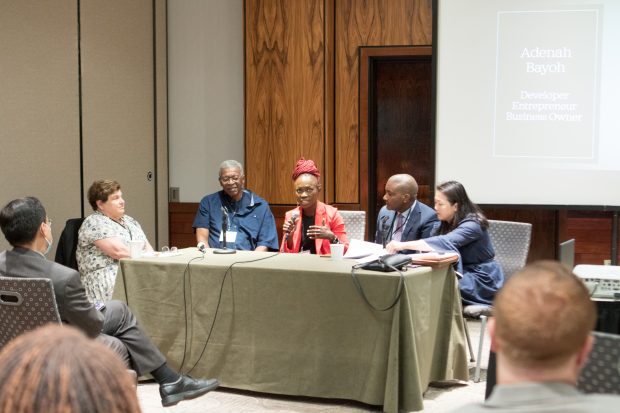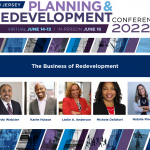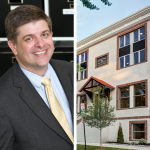New Jersey Future Blog
Equitable, Sustainable Development and Redevelopment for a Bright New Jersey Future
July 8th, 2022 by Michael Atkins
Throughout the 2022 NJ Planning and Redevelopment Conference, co hosts New Jersey Future and the New Jersey Chapter of the American Planning Association sought to convene panels featuring industry experts and community leaders. As one would expect with a “redevelopment” conference, themes of successful and sustainable redevelopment were highlighted in depth, while experts also attempted to educate attendees on diversity and inclusivity practices when developing housing and commercial spaces aimed at improving the lives of New Jersey residents.
“Redevelopment: Solving the Problems of Today, Creating the Community of Tomorrow,” specifically examined the vast opportunity for redevelopment to serve as a tool in addressing current problems within our built environment. Panelists included: Valerie Jackson, director Economic Development with the City of Plainfield; Tanya Marione, director of Planning for Jersey City; Jennifer Credidio of McManimon, Scotland, & Baumann; and Jessica Caldwell, founder of J. Caldwell & Associates.

Breakout session “Redevelopment: Solving the Problems of Today, Creating the Community of Tomorrow” during the New Jersey Future and APA-NJ New Jersey Planning and Redevelopment Conference 2022 at the Hyatt Regency, New Brunswick on June 16, 2022. Photo Credit: Keith Muccilli
New Jersey’s redevelopment law provides local governments with enhanced planning, zoning, contract and financial powers. These powers can produce economic value where the private markets cannot, and enhance municipal control over design, development, and implementation. Some of these economic incentives for redevelopment include: long-term tax exemption, grants or loans in aid of redevelopment projects, land acquisition and condemnation, redevelopment area financing, and developer eligibility for state incentives.
“Land is limited, so you have to be very strategic about redevelopment and land use,” said Valerie Jackson of Plainfield. Panelists brought case studies from their respective New Jersey cities and towns where redevelopment has afforded them the latitude to exert control in reinvigorating their communities. Examples include a shopping center that now lack the grocery store that once anchored the center, an abandoned quarry, a former hospital, and town centers in need of new investment and enterprise. Jersey City has a major redevelopment in the works. The City plans to redevelop and infill the former Honeywell industrial site and implement the City’s first new neighborhood in decades. The site promises thousands of units and 35% affordable housing, which will make it the largest mixed-income community in the tri-state area.
While redevelopment affords cities great control in encouraging redevelopment to vacant, abandoned, or underutilized lands, this reveals a broader question of how to foster diversity, equity, and inclusion within development projects and firms. This question was addressed head on at “Developers and DEI: Overcoming the Obstacles.” This panel featured developers Adenah Bayoh and Patrick Terborg; Eileen Della Volle, vice president of business development at KS Engineers; Attorney Jong Sook Nee, and Ron Scott Bay, chairman of Planning Board of Plainfield, NJ.

Breakout session “Developers and DEI: Overcoming the Obstacles” during the New Jersey Future and APA-NJ New Jersey Planning and Redevelopment Conference 2022 at the Hyatt Regency, New Brunswick on June 16, 2022. Photo Credit: Keith Muccilli
The panelists broadly agreed that developers must embrace the changing landscape that has more heavily emphasized diversity, equity and inclusion (DEI). Failure to do so results in missed opportunities, underserved communities, and money left on the table that developers would have otherwise capitalized upon with an integrated approach to building to community needs. Patrick Terborg punctuated this point succinctly, “you can make money by embracing diversity.”
Adenah Bayoh shared, “People are sometimes trying to be invisible, which doesn’t mean they have no rights.” She added that experience and representation matters on a given developer’s team as they seek to construct diverse and/or mixed-use communities, including adding a member of the community to the project team to inform project goals and implementation. Eileen Della Volle concurred, underscoring the importance of diversity by adding, “People may be diverse because of their experiences, and that is a valuable contribution, too.”
Ron Scott Bay further encouraged developers to open up to community inputs by imploring developers to “be open-minded” and acknowledge that “everyone should have an opportunity, not just a select few” with respect to serving on developer teams or living in newly constructed housing units. Patrick Terborg encouraged developers to “be intentional” when considering hiring and soliciting community input for development projects. Encouraging audience members to consider “who you can use that would add value and may be of color.”
In conclusion the panelists encouraged developers in the audience to embrace DEI by valuing team inputs and taking continual stock that DEI principles. Opportunities to embrace DEI include during hiring and promotion, project inputs, training and education of staff members and consultants, sourcing goods and services for a development project, and, importantly, conducting true outreach and emphasizing mutual understanding between developers and the communities they work with.
Related Posts
Tags: conference, Development, diversity equity and inclusion (DEI), Planning and Redevelopment Conference, Redevelopment, redevelopment law, sustainable, sustainable redevelopment
















